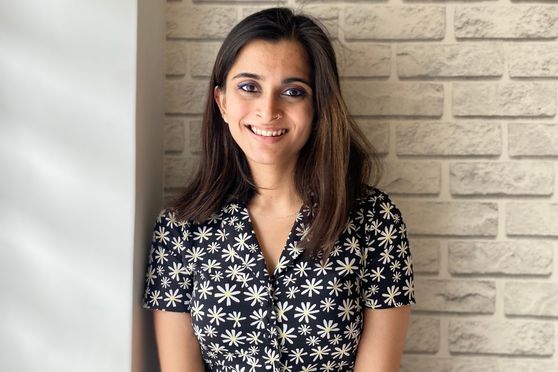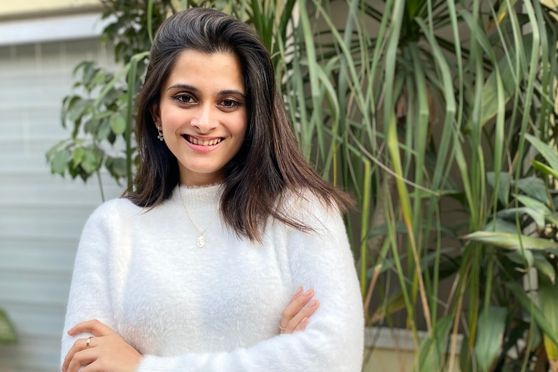Choosing Psychology Is Not Always About Scope But Passion, says Divija Bhasin


Divija Bhasin is a psychologist with a number of academic degrees in psychology from Ambedkar University, Amity University & the University of Bath. She is also a content creator who significantly contributes to raising awareness about mental health on social media by engaging with her followers and creating fun and realistic reels about mental health. Divija goes by the username @awkwardgoat3 on Instagram. With her Instagram mental health service, The Friendly Couch, she is trying to help people connect with reliable psychologists.
We, at Edugraph, had an interaction with Divija where we talked about her academic journey, the importance of mental health, the impact of social media and much more.
I have been interested in this subject from the start because my mother used to often read and talk about psychology due to her own personal interest in it. Plus, I had a lot of people in my social circle who had visited therapists and psychiatrists. I could see the impact it had on their lives, especially because some of them were diagnosed with clinical disorders. It was inspiring to see how therapy can help people.
I would say that all places teach differently. Throughout my education, different techniques have been used to teach us. I especially enjoyed my time at the University of Bath since they focused a lot on self-study and reflection. I study best when I’m tested using different methods and not just exams.
I have always dreamt of becoming a clinical psychologist (you need to complete M. Phil for that). Once I finished my Master, my plan was to straightaway start applying to M. Phil, but the pandemic happened and I started working as a counselling psychologist + [content] creator. Thereafter, I realised I am delighted with this form of a career rather than going into the core clinical side of it.
My focus is now on developing my mental health organisation The Friendly Couch and being able to impact way more people through therapy by having a team of psychologists. I would not be able to do this with my M. Phil since I would have to give all this up to focus on my studies.
Read: How Digitally Empowered Teachers Are Unlocking India’s Potential on World Stage?
The major difference is that Psychiatrists are medical doctors and primarily treat with medicines. Some of them do courses in therapy and use it as part of their treatment. They mostly see people who have clinical concerns like depression or anxiety disorders.
Psychologists, on the other hand, are not medical doctors and treat people with therapy and counselling. They are usually trained and experienced in seeing clients with various concerns. People without disorders also go to them.
Clinical psychologists are trained to see people with disorders just like psychiatrists.
Counselling psychologists see people without disorders, with fewer clinical concerns such as relationships, school, career, family problems, trauma, etc.
Related: Psychologists vs Psychiatrists: Know The Difference
Most of the skills you need to be a psychologist can be learned, such as listening non-judgementally, having empathy, being warm etc. These are apart from the actual knowledge you need to have from the academic degrees.
Talking about mental health has always been important but nobody paid attention to it. The youth of this generation are just more aware of its importance.
Check Out: Guide For Students To Cope With Stressors While Planning Education Abroad

By seeing psychology as a proper profession and not just something anyone and everyone has knowledge about. Psychology is often trivialised as people don’t understand it or don’t see it as a science. It is backed by research unlike what people think. There are many superstitions and misconceptions around it as people don’t know what it actually is.
We can bring about more awareness by giving a voice and platform to psychologists so they can educate the public about it.
Social media helps me reach millions of people. Even if they’re not interested in learning about these things specifically, my videos help me make them aware of the existence of mental health. You may not watch the whole video but you’ll still be subconsciously made aware that therapy is a thing.
I hope I help more people understand mental health and clear the misconceptions regarding everything related to it. I am doing this by not only making videos on these topics but also helping real people connect with therapists on my team. I care deeply about how many people have bad experiences with therapy and that’s why I work very hard to ensure that they feel comfortable in reaching out to us at The Friendly Couch. I just hope to create a world where people have positive experiences with therapists so they don’t feel hesitant to seek the professional help they need.
A downside is that many people put psychologists on a pedestal and expect them to be perfect human beings. There is a notion that psychologists don’t get angry, sad or display any negative emotions. This stems from the myths around psychology. Due to this some people often feel shocked to see the very “real” and “human” side of me and leave rude comments on my posts.
Also Read: 4 Important Tips For Using Social Media For Job Hunts
I have seen the field grow a lot in the past few years and I think more and more people will be open to seeking help in the near future.
Please don’t listen to people who say there is no scope. I know “scope” is a huge part of choosing a career and it is impossible to get that motivation when everyone around you says otherwise. There is scope if you are passionate about it and there is nothing wrong with wanting to be a successful psychologist. Just make sure to also provide value to your clients and actually help them.
Know More: Different Career Pathways In The Mental Healthcare Sector